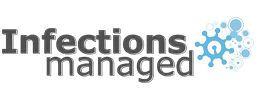HIV/AIDS
HIV Treatment
HIV is a virus spread through certain body fluids that attack the body’s immune system, specifically the CD4 cells, often called T cells. Over time, HIV can destroy so many of these cells that the body can’t fight off infections and disease.
These special cells help the immune system fight off infections. Untreated, HIV reduces the number of CD4 cells (T cells) in the body. This damage to the immune system makes it harder and harder for the body to fight off infections and some other diseases.
Opportunistic infections or cancers take advantage of a very weak immune system and signal that the person has AIDS. Learn more about the stages of HIV and how to know whether you’re infected.[/column_1]
HIV Tests For Screening and Diagnosis
We offer FREE HIV Tests using Orasure. HIV tests are very accurate, but no test can detect the virus immediately after infection. How soon a test can detect infection depends upon different factors, including the type of test being used. There are three types of HIV diagnostic tests: antibody tests, combination or fourth-generation tests, and nucleic acid tests (NATs).
- Antibody tests detect the presence of antibodies, proteins that a person’s body makes against HIV, not HIV itself. Most HIV tests, including most rapid tests and home tests, are antibody tests. It can take 3 to 12 weeks for a person’s body to make enough antibodies for an antibody test to detect HIV infection. In general, antibody tests that use blood can detect HIV slightly sooner after infection than tests done with oral fluid.
- Combination or fourth-generation tests look for both HIV antibodies and antigens. Antigens are a part of the virus itself and are present during acute HIV infection. It can take 2 to 6 weeks for a person’s body to make enough antigens and antibodies for a combination test to detect HIV. Combination tests are now recommended for testing done in labs and are becoming more common in the United States. There is also a rapid combination test available.
- NATs detect HIV the fastest by looking for HIV in the blood. It can take 7 to 28 days for NATs to detect HIV. This test is very expensive and is not routinely used for HIV screening unless the person recently had a high-risk exposure or a possible exposure with early symptoms of HIV infection.
An initial HIV test will either be an antibody test or combination test. It may involve obtaining blood or oral fluid for a rapid test or sending blood or oral fluid to a laboratory. If the initial HIV test is a rapid test and it is positive, the individual will be directed to get follow-up testing. If the initial HIV test is a laboratory test and is positive, the laboratory will usually conduct follow-up testing on the same blood specimen as the initial test. Although HIV tests are generally very accurate, follow-up testing allows the health care provider to be sure the diagnosis is right.
Contact us today to schedule your FREE HIV Test! Or call us at 954-776-9992
Our location: HIV Treatment Fort Lauderdale
Sephen Renae MD, FACP
Sexual Transmitted Disease. PrEP Specialist.
